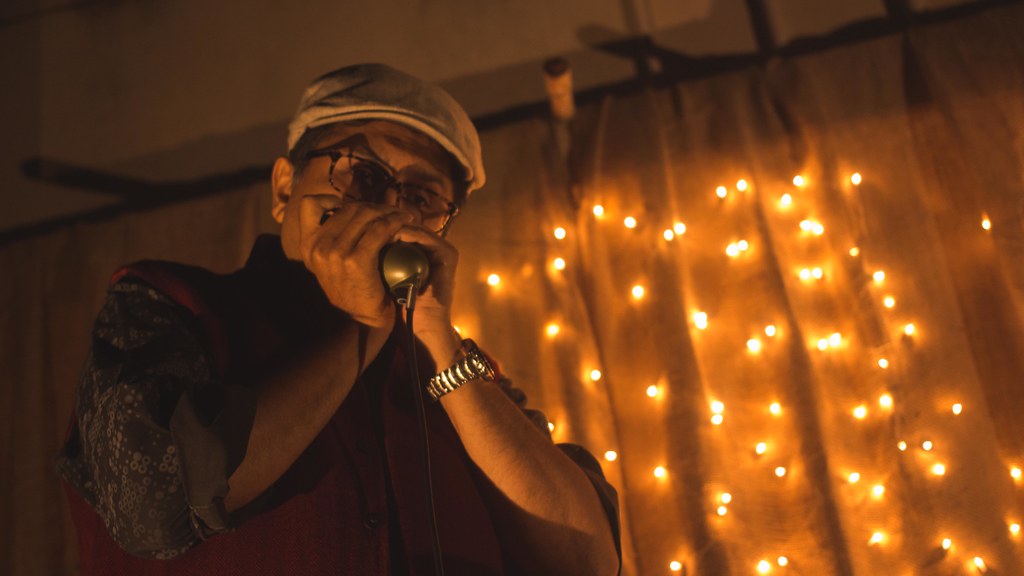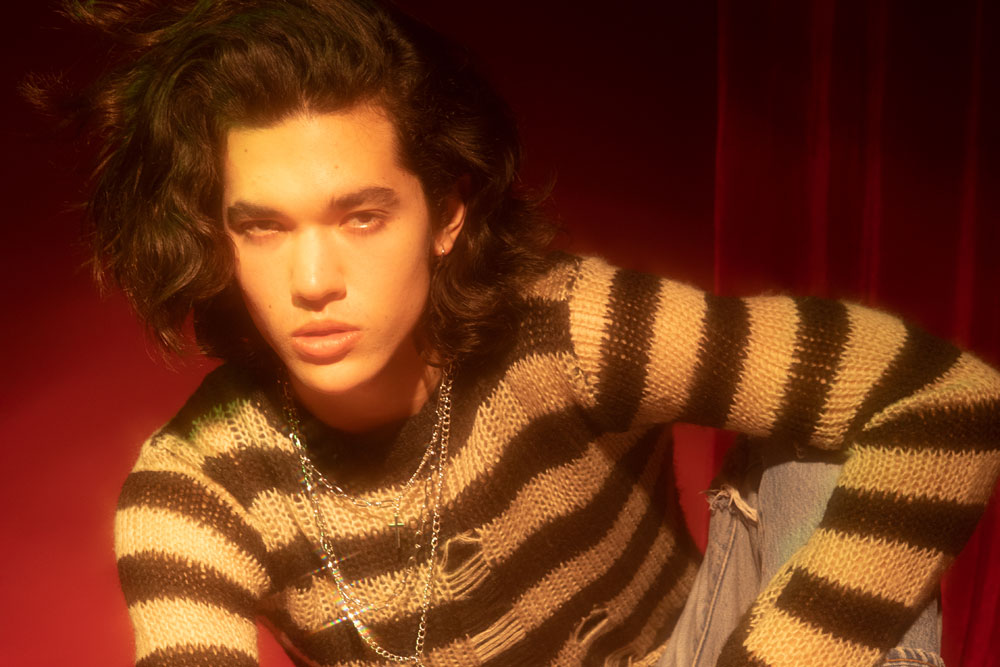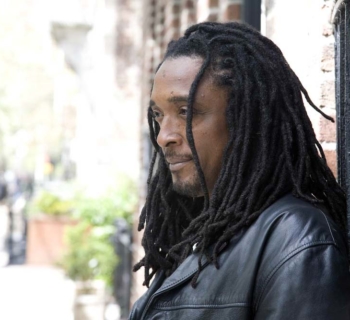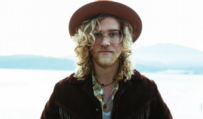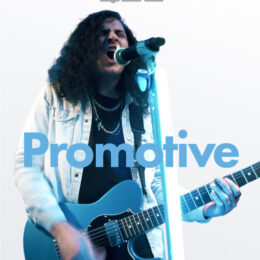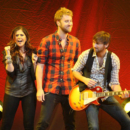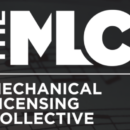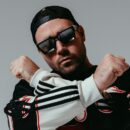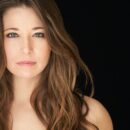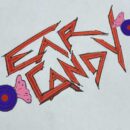Welcome to our annual array of vocal delights! We consistently offer, arguably, the best and most eclectic mix of singers anywhere, and they come from all areas of the artistic spectrum to generously share their wealth of performance tips, career advice and amusing anecdotes. On board this year we've got emerging singer-songwriter Alexandra Savior, He is Legend frontman Schuylar Croom, rising R&B/pop star Allen Stone, veteran session/sideman and solo artist Bernard Fowler and legendary crooner Jack Jones.
Jack Jones
Contact: Jim Della Croce
jim@thepressoffice.com
Website: jackjones.lolipop.jp

Born in Hollywood, CA, Jack Jones’ list of hits spans several decades and generations. From ‘60s gems like “Wives and Lovers” and “Lollipops and
Roses” to the iconic ‘80s TV theme “The Love Boat,” he truly has been a man for all seasons. With a catalog of 60-plus albums under his belt and now celebrating his 82nd year around the sun, Jones is as vital now as ever. Evidence of that is his soon-to-be-released album, produced by Tom Scott, called Every Other Day I Get the Blues (Calvary Records).
Vocal Training
When I was in high school my father, whco was a singer himself at the time, was not a jazz singer but a legit operatic singer. He wanted me to get a good foundation so I didn’t abuse my voice. He sent me to these two Frenchmen who were vocal teachers in Hollywood. I learned about breathing through the diaphragm and stuff like that. They helped me a lot.
Early Influences
I liked Mel Torme. There were quite a few instrumentalists, like the Dave Pell Octet. My head was in that direction, but I was singing pop. And the number one guy for all of us back in those days was Frank Sinatra. I didn’t wanna sound like Sinatra, but I wanted to think like him and phrase like him. I wanted to be that actor that he was when he sang.
Working With Michel Legrand
Back in the early ‘70s I flew to Paris to rehearse in the country with Michel Legrand. When we had the music rehearsed and we knew what we were doing, we went to this old church and all these wonderful musicians filed in. We didn’t know each other, but you could feel it happening as we started recording the first day. We bonded and it was a beautiful album. We weren’t just making tracks where I was in a soundproof room apart from the band. I was right there in the middle of them. At the end of the session I walked up to Michel, kissed him on the mouth, and said, “Thank you very much!” And he’s the only male I’ve ever kissed on the mouth (laughs). He was a brilliant man.
Keeping Songs Fresh
I just really like to tell good stories with the songs. I usually don’t do two ballads in a row unless there’s a good reason for it. I just like to make it interesting and make it feel good. I try to change things up.
#MeToo
I got a lot of flak for the song “Wives and Lovers” from the National Organization of Women. They spoke out against it. I was doing a theater-in-the-round in Massachusetts and as I was going to my car this woman wanted to punch me. It created so much drama and was so silly. I had to take the blame for it and I didn’t even write it; Burt Bachrach and Hal David did (laughs). I hesitate to talk about it, but I agree with the Me Too movement and think it’s disgusting what’s going on out there.
The New Blues Album
This is not your grandfather’s Jack Jones album. I’ve known Tom Scott for years and his arrangements are wonderful and full of energy. And the songs are not typical, either. We’ve got three or four on there by Keb’ Mo’. There are a lot of comedic and quirky things about it. It swings!
Best Career Advice
When I was starting out, a guy once told me you need to look at the audience and tell them your story. Bring them in to your world. I started out as a frightened singer who was not used to being in front of people and letting it all hang out. And I did it without drugs. Taking drugs is a way of losing your inhibitions, but that’s the worst thing you can do. •
 Bernard Fowler
Bernard Fowler
Contact: Jill Richmond
jill@rhyme-reason.com
Website: bernardfowler.com
You may not immediately recognize his name, but if you’ve heard a Rolling Stones album over the last 30 years or seen them in concert, you have been graced by the voice and presence of Bernard Fowler. In addition to the Stones, Fowler’s resume includes backing vocal work with Herbie Hancock, Material, Sly & Robbie, Yoko Ono, Duran Duran, Public Image Ltd., Philip Glass and a host of others. His current solo album is a collection of spoken-word interpretations of deep tracks by The Rolling Stones called Inside Out (Rhyme and Reason).
Early Influences
I guess I learned about singing from the radio. It was predominantly soul and rock music. I always liked anyone who sang with George Clinton and Parliament Funkadelic. George found some of the best voices in the business. Sam Cooke, The Temptations, Bobby Womack, The Five Blind Boys, Mick Jagger and Gino Vanelli are some of my favorites.
Preparing For Stage vs. Studio Performance
Stage performance is a lot more demanding because it’s a lot more physical. Some people just stand there and sing, and that’s alright. But most people have some sort of little jig they do when they’re performing. And to prepare for that, it’s just not vocal, it’s physical.
Vocal Health
I don’t do the lozenges anymore. I do gargle with salt water and warm water. There is a product called TMRG which is an herbal elixir that you put in warm water and you gargle with it. It’s from Israel and only available online. I found that to be really helpful, especially when I have a long tour, with a bunch of back-to-back dates.
Working With The Stars
On the Voodoo Lounge album there’s a song Keith Richards wrote called “How Can I Stop.” I was lucky enough to be with him when he wrote the song. All the background stuff on that song I had begun formulating in my head. When the song was actually recorded I was able to do the exact vocal arrangement I was hearing. Another time I was working with Alice Cooper on his Along Came a Spider album. And there was a song on there he wanted to do as a duet with Ozzy Osbourne. For some reason Ozzy’s wife Sharon didn’t want him to do the song. Alice was really disappointed and I told Alice I would do it with him. He said “Bernard bless your heart, but I really wanted Ozzy.” So, I went into the bathroom and put some tissue in my nose. I went back in the studio and said, “Roll the tape!” I actually sang the duet with Alice. When the record came out someone from the press even made a comment that Alice did a song with Ozzy. But it wasn’t him, it was me!
Versatility As A Vocalist
Most people find something they like and that’s what they do. I’ve never been that way, because I like so many different kinds of music. If it’s something that feels good to me I will try it. In the early days it was a little intimidating, but I found I had a niche for it. I doubled voices for Ozzy, Lemmy and John Lydon. If you don’t stretch out you’ll end up staying in one place. •
 Alexandra Savior
Alexandra Savior
Contact: Leigh Greaney
leigh@bighassle.com
Website: alexandrasavior.com
Singer-songwriter Alexandra Savior hails from Portland, OR, and debuted nationally in 2017 on Columbia
Records with the album, Belladonna of Sadness. Her mesmerizing delivery and dreamy songs laid the groundwork for a unique sound mixed with melancholy and personal reflection. Her sophomore release, The Archer (on Danger Mouse’s 30th Century Records label) is an eerie and somewhat surreal tapestry of material. NME states “This is a timeless collection.”
Description of Her Sound
That’s a hard question. It’s just me. I usually say my music sounds like the ‘60s when UBER drivers ask me that question.
Influences
I’m really inspired by female artists who have life stories that interest me. Artists like Karen Dalton and Sibylle Baier; they have stories where they were never recognized until they died.
About The New Album The Archer
I feel more established as a person on this album. And I think it embodies how I feel about myself. I think this portrays more who I am than the past work did.
Her Distinct Vocal Style
I think it evolves over time, from when I write a song to touring a song. The vocal treatment I give it changes quite a lot. I think to tour, in particular, changes the way you sing songs because you have to sing much louder than when you record them. I have techniques to maintain some consistency with the songs when I’m singing them live.
Vocal Warm-ups
When I was a teenager I took singing lessons. I gathered some warm-ups to breathe from the diaphragm. I also sing “Someone to Watch Over Me” by Ella Fitzgerald in the venue before I go on stage. It has a wide range and helps loosen up my vocals.
Songwriting Inspiration
Generally, what I’m going through in my life. I think that’s changing now as I mature. A lot of my writing has been about manipulation and power dynamics from the perspective of a young girl or woman. Now I’m writing about trying to find happiness in life.
Supporting Vocal Health
I drink a lot of tea, with hot water and lemon. The hardest part is when it’s your project and you have to host people at a lot of your shows. You have to talk a lot and do interviews. You need to refrain from talking, but you’re screaming over some loud house music telling everyone “thanks for coming!”
Stage Highlight and Mishap
I felt pretty good playing a show last week in LA at the Pico Union Project. I was in this big synagogue and it sounded so good in there because it was a place built for music. A low point is when people heckle you. They think it’s funny, but it destroys me when people yell stuff out and try to have conversations with me on stage. I think some people don’t even understand that you can hear them. They think they’re watching a screen or something.
Working In The Studio
I just like to capture the right emotion when I’m recording. As long as I feel good about it, even if it isn’t technically the perfect take, that’s usually what I try to access. •
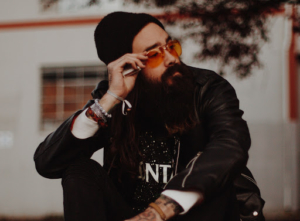 Schuylar Croom
Schuylar Croom
Contact: Jon Freeman
freeman@freemanpromotions.com
Website: heislegendnc.com
Schuylar Croom has been the lead vocalist for modern hard rockers He is Legend since their inception in 2003. The North Carolina-based quartet has steadily been building an avid cult following by consistently delivering energetic shows, inventive arrangements and a take-no-prisoners attitude. Their sixth album release on Spinefarm Records is 2019’s White Bat.
Vocal Background
I was in marching band, jazz band and in a southern gospel band with my folks. My senior year in high school my chorus teacher asked me if I wanted to be in the play, Grease. I played “Danny Zucco” and it was odd and weird for me, but very cool at the same time. But, at that time, I had also carved out my niche at starting a rock band as well. This was my way of really jump-starting that, I guess. I had fun kissing a girl and singing falsetto, but I had no other formal training other than that music teacher. Also, when I was in LA recording our album, Suck Out the Poison, I had one lesson with this guy who gave me some warm-ups. I tried to stick with him, but my philosophy has always been 99% of the job is just showing up.
Vocal Support
I’ve never done any teas or throat sprays. I just bought a microphone for personal use two years ago. I had always used the shitty in-house mics that have probably been stuck in precarious places. I think that has kept me healthy. I use a Sennheiser and it’s a good rocker mic. What’s really important too is getting adequate sleep. I’m trying to be more protective of that.
In-Ear Monitoring
No. I usually have a monitor mix on stage and we’re lucky if we have side fills. But I don’t like in-ears or wireless microphones. I like to have the music blasting pretty loud. And I would rather not hear myself on stage as much as a lot of singers would. The vibe will hit the way that it needs to if I hear myself through the mains. I don’t really remember my stage time. That’s the part of the show that usually disappears. I like the vocals a little under the mix, like a classic Ozzy/Black Sabbath style.
Influences
Tom Waits, Jeff Buckley, Nick Cave and Bob Dylan. I like storyteller singers. They portrayed stories that were more than just love songs. When I got older I got more into Deftones, Misfits, Joy Division, dark wave, dance and goth.
Working In The Studio
We track the drums first, all of the guitar work and then I usually go to Mitch Marlow, who played in our band for a while. He’s a lifelong friend and producer. He knows my vocal stylings and I trust what he can pull out of me. It’s a very intimate thing doing vocals. It’s a part of you that takes a certain warmth and grit. You essentially have to pretend like you’re doing the best show of your life to an audience of one who is your engineer. And you have to capture that energy and emotion that would only come as a conduit through the fans.
Selecting The Proper Vocal Approach
White Bat called for more aggressive or metal vocals. But mostly, I’m looking for the pop sensibility in these jarring songs. I like wordplay. I like to think about a sentence for a long while. I’ll walk outside and sit with a melody between takes and know that it will change the entire structure of a song.
Best Career Advice
When I was young we were signed to the same label as this guy Chris McClain. And I remember I was so excited to talk with him. And the only thing he told me was, “Get it in writing.” Also, for aspiring bands, play every show you can, try to get out of your town as much as possible and just get out there and continue. •
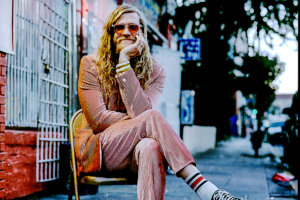 Allen Stone
Allen Stone
Contact: Josh Page
jpage@shorefire.com
Website: allenstone.com
The energy you get from an Allen Stone performance is infectious and steeped in a heavy dose of classic R&B, jazz, funk and soul. The spirited singer-songwriter has released four albums, with his latest being Building Balance (ATO Records). Aside from chart-topping singles and sold out concerts, Stone has made some memorable appearances in recent years on TV via The Ellen DeGeneres Show, Jimmy Kimmel Live and Daryl Hall’s Live from Daryl’s House.
Vocal Background
My folks were ministers so we all sang as a family growing up. When you grow up singing in church, you’re singing at least twice a week. Other than that I was just listening to records and trying to mimic what I was hearing.
Early Influences
I was getting into music when I was around 11 or 12. I was picking up my dad’s guitar and kinda learning some songs on it. Weezer and Red Hot Chili Peppers were popular at the time. When I was 15 or 16 I got into hip-hop artists like Common and Q Tip. And then a buddy of mine showed me a bunch of Stevie Wonder albums and I got hooked on it. I started discovering similar artists like Gladys Knight, Donny Hathaway and all the quality stuff.
Warm-up Routine
I do a breathing exercise I learned from my buddy Andrew McMahon when I toured with him. It was made famous by this German guy named Wim Hof. It’s essentially 30 deep breaths through the nose in succession. And on the 30th breath you breathe it all out and hold it for a minute and a half. Do that three times. By the last round it’s pretty amazing how lifted you feel. And then I follow that with a vocal warm-up in the baritone realm. I do another round of breathing and then I do a tenor warm-up. If I’m not up to my neck in other stuff, to do that would be my preferred exercise before a show.
Vocal Support
The most important thing on the road is sleep. Anything under six hours and you’ll be fighting that fatigue. I try to drink a lot of water throughout the day. Throat Coat, with a little lemon and honey, is a wonderful thing for the voice and the cords.
Best Career Advice
When I started out I was kind of a traditionalist and kind of an old soul. I was sort of opposed to using the internet to connect with fans. I had a friend who was in publishing and the music game for a long time. A few years ago he sat me down and said, “Al, it’s not the focus, it’s not the music, but it’s another dimension to this universe that you’ve created. And if you utilize it really well you can say anything you want, you can express yourself any way you want and it can be a very useful asset.” That really stuck with me. So, play out as much as you can, play in front of as many real people as you can and get good on the internet. •


